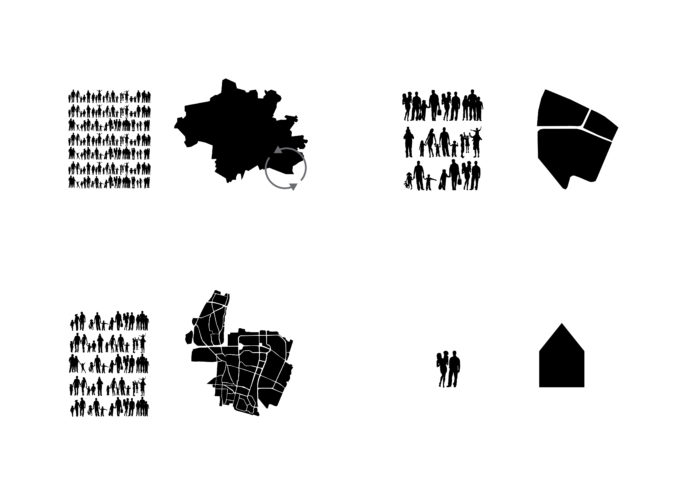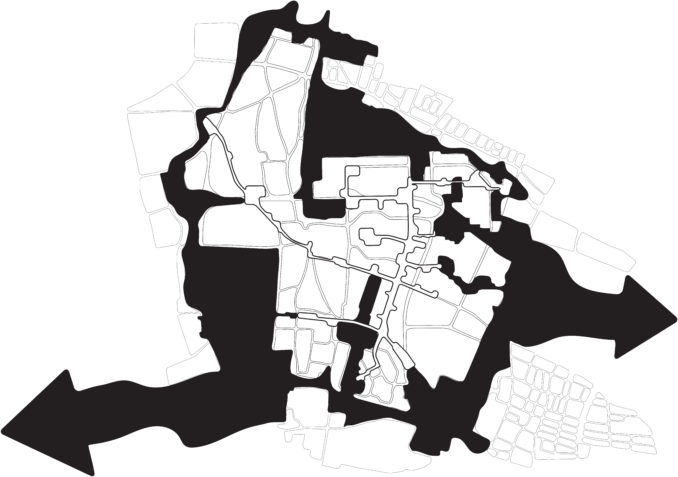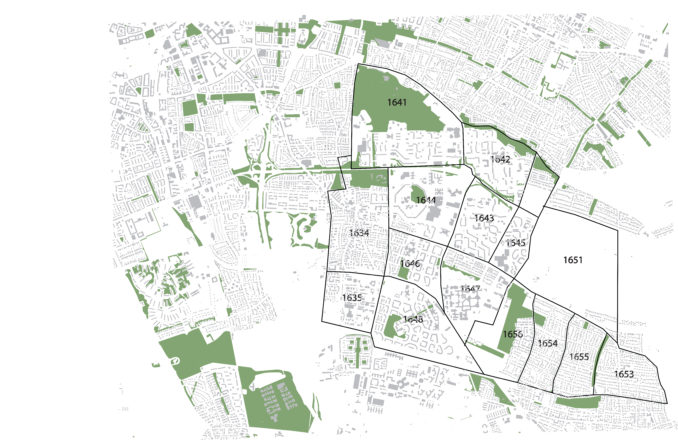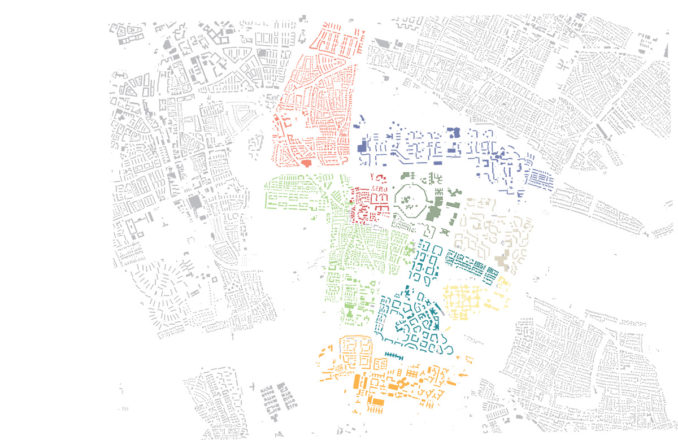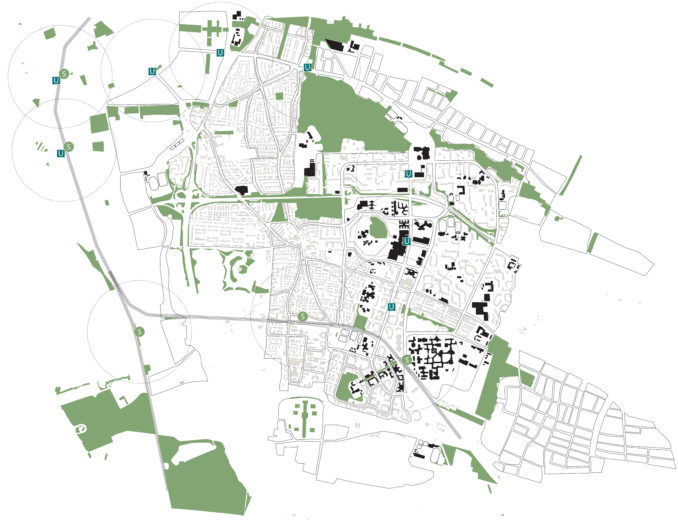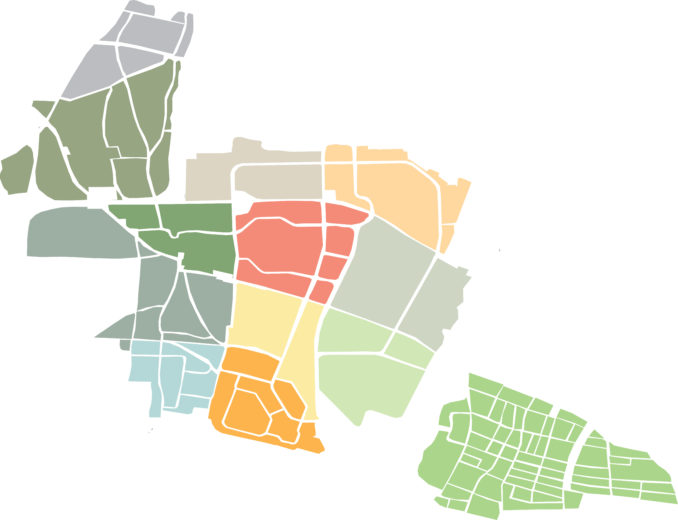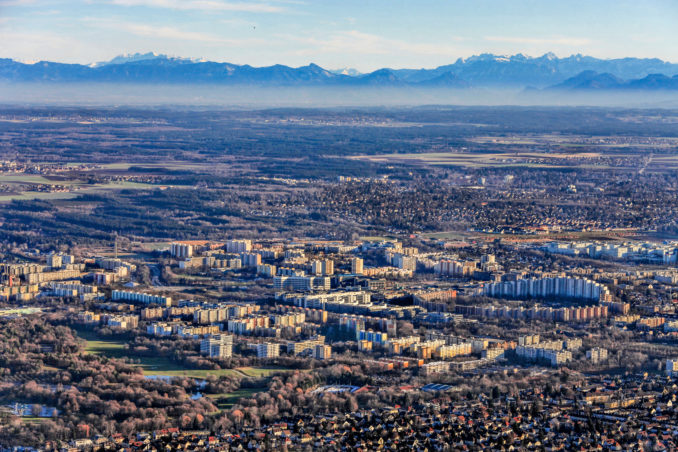
Germany is raising the bar for green urban renewal – and is looking to Denmark for inspiration. One of the offices making a substantial impact on the future of German cities is Copenhagen based ADEPT, which has recently underlined its position by winning the contract for the renewal of Munich neighborhood, Neuperlach, with a total of impressive 1100 ha mixed housing and public functions.
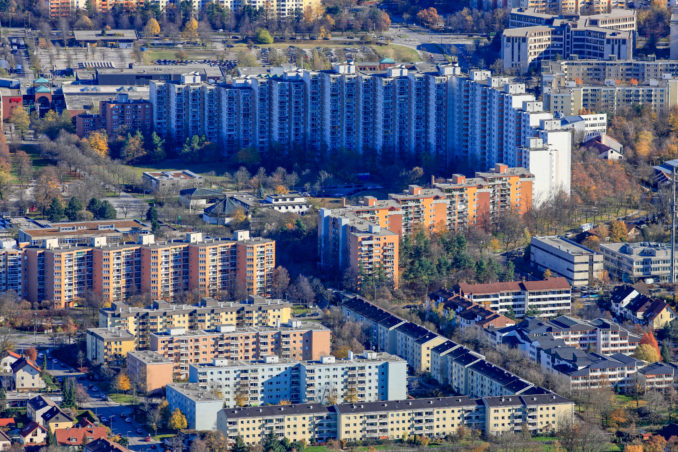
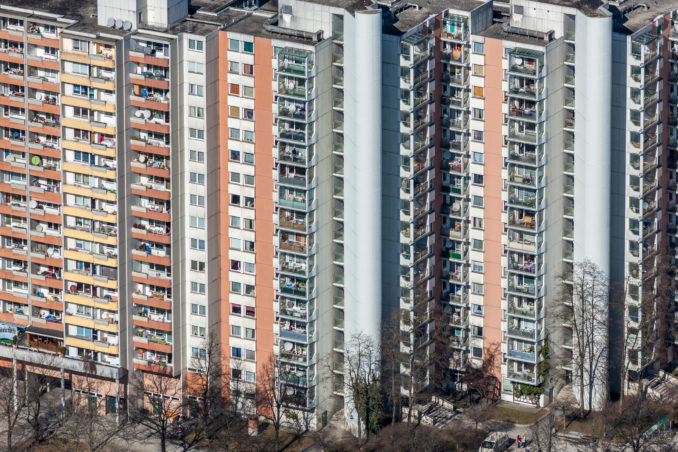
Earlier on known for its social and infrastructural challenges and typical of the post-ww2 urban developments of the 60’s and 70’, Neuperlach is the largest of its kind in Germany. Originally planned with more than 80.000 housing units as well as cultural and social functions, the masterplan was never fully completed, adding to the impression of neglect in the area.
The transformation of the enormous district at the edge of Munich City is one of the largest ongoing developments in Germany. The development includes planning at all scales: from the overall strategic masterplan to a plan for the detailed renovation of a large part of the residential complexes, as well as designing a firmly anchored process for involvement of the citizens in the area. A target area of 500 ha kick-starts the process with a specific preliminary investigation.
’What is quite unique about this specific project is not only the vast scale of the action area. It is the whole approach to the project that means that the process ahead of us is so comprehensive, aiming to anchor the development in all aspects, from the large regional scale, to the facilitation of citizen involvement and recommendation to future physical development of the area’, says partner Martin Krogh, ADEPT.
Neuperlach’s building volume and the open structure of the modernistic urban layout are both characteristic to the area, endowing great development potential, not least because of its open spaces that are a scarce commodity in Munich. At the same time, the urban layout makes re-thinking of cultural and social infrastructure, future mobility, green structure as urban active, resources and climate adaption ideal.
’Our experience is that both ambition and vision, specifically regarding urban development, are extremely high in Germany’, says Martin Krogh and elaborates, ‘It really raises the bar for the sustainable future of cities and this at a scale comparable to no other in Europe. As Danish planners, we can definitely contribute with a specific Nordic idealism, characterized by a more-hands-on approach than might be usual in Germany, but we can also gain valuable experience from the visionary direction set by the authorities. I believe that it is a very fruitful cross-fertilization of professional competence and national ambition.’

